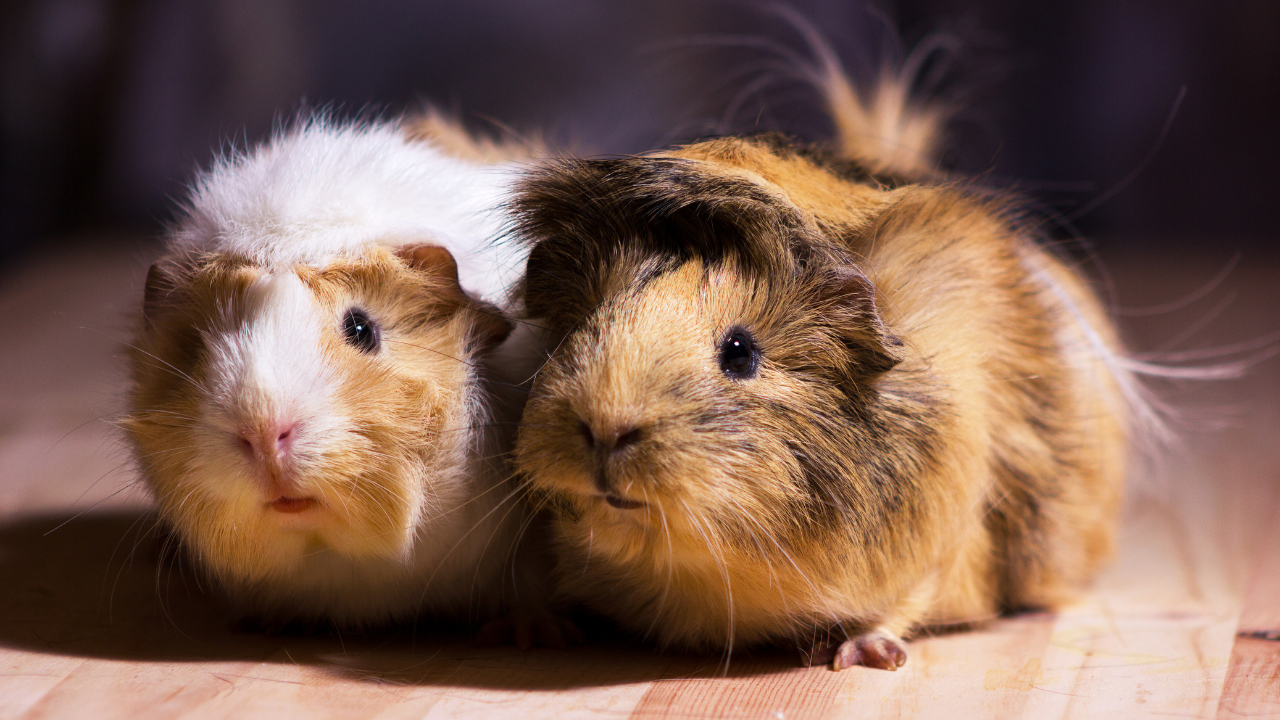
Guinea pigs have been enjoying a surge in popularity in the UK recently. Almost 2% of UK households own a guinea pig – levels not previously seen since 2017.
Perhaps it’s their gentle nature, their comical squeaks, or their low-maintenance reputation that’s attracting new owners. But before you bring home a pair of these adorable little cavies (their scientific name!), it’s important to understand their needs to ensure they live happy and healthy lives.
Living Space
Guinea pigs are social creatures who thrive on space for exercise and exploration. The RSPCA recommends a minimum enclosure size of 120cm x 60cm x 45cm for two guinea pigs, but bigger is always better. Consider investing in a hutch with an attached run or customise a large indoor space to create a secure pen. Remember, guinea pigs love to hide, so give yours a cosy house and plenty of hay to burrow in.
Location is key too. Avoid drafty areas or rooms with direct sunlight. Guinea pigs are sensitive to temperature fluctuations, so aim for a consistent temperature between 17-20 degrees Celsius.
Bedding: Ditch the cedar chips and opt for absorbent, soft hay or wood shavings like aspen. Spot clean daily and perform a full clean with an animal-safe disinfectant at least once a week.
Exercise Essentials: Guinea pigs are surprisingly active. Provide them with a variety of tunnels, ramps, and chew toys to keep them entertained. Daily supervised floor time outside their enclosure (in a safe, guinea-proofed area) is essential for exercise and enrichment.
Diet
Just like us, guinea pigs need a balanced diet to stay healthy. Here’s the lowdown:
- Hay: Specialist guinea pig hay should be available 24/7. It provides essential fibre for gut health and helps wear down their constantly growing teeth.
- Fresh Vegetables: Daily helpings of fresh vegetables are vital for vitamins and hydration. Guinea pigs love peppers, leafy greens, and root vegetables (but avoid iceberg lettuce and cabbage which can cause bloating).
- Guinea Pig Pellets: Choose a good quality pellet specifically formulated for guinea pigs. These provide essential vitamins and minerals. Offer them in moderation – around a quarter of a cup per day for two guinea pigs.
- Fresh Water: Always provide access to fresh, clean water in a bottle with a sipper tube. You can also offer a shallow dish for occasional drinking – but be prepared to clean it frequently as guinea pigs tend to use it as a toilet!
Vitamin C Boost: Guinea pigs can’t produce their own Vitamin C, so it’s crucial to supplement their diet with a daily dose of liquid vitamin C or vitamin C-rich treats. Ask your vet for recommendations.
Socialising
Guinea pigs are highly social animals and should never be kept alone. Ideally, adopt two guinea pigs of the same sex (unless you’re planning to neuter a male). Watch for signs of incompatibility such as excessive dominance or fighting and separate them if necessary.
Introducing New Guinea Pigs: Always introduce new guinea pigs on neutral territory and supervise their interaction closely. The process can take time, so be patient and ensure there’s enough space for both to retreat if needed. There are plenty of resources online with detailed introduction techniques.
Building a Bond: Spending time with your guinea pigs is essential for building trust and a strong bond. Talk to them gently, offer them treats from your hand, and allow them to explore your lap during supervised floor time.
Health Checks
Regular health checks are vital for catching any potential problems early on. Look out for these signs:
- Weight loss: Sudden weight loss can be a sign of illness. Weigh your guinea pigs weekly to monitor their wellbeing.
- Wet fur around the rear: This could indicate a urinary tract infection or dental problems.
- Wheezing or difficulty breathing: Respiratory problems can be serious. Consult your vet immediately.
- Lethargy or loss of appetite: These can be signs of a variety of illnesses.
Schedule a check-up with a vet experienced in exotic animals soon after adopting your guinea pigs as well as regular appointments.
See more of my pet-related lifestyle posts here
